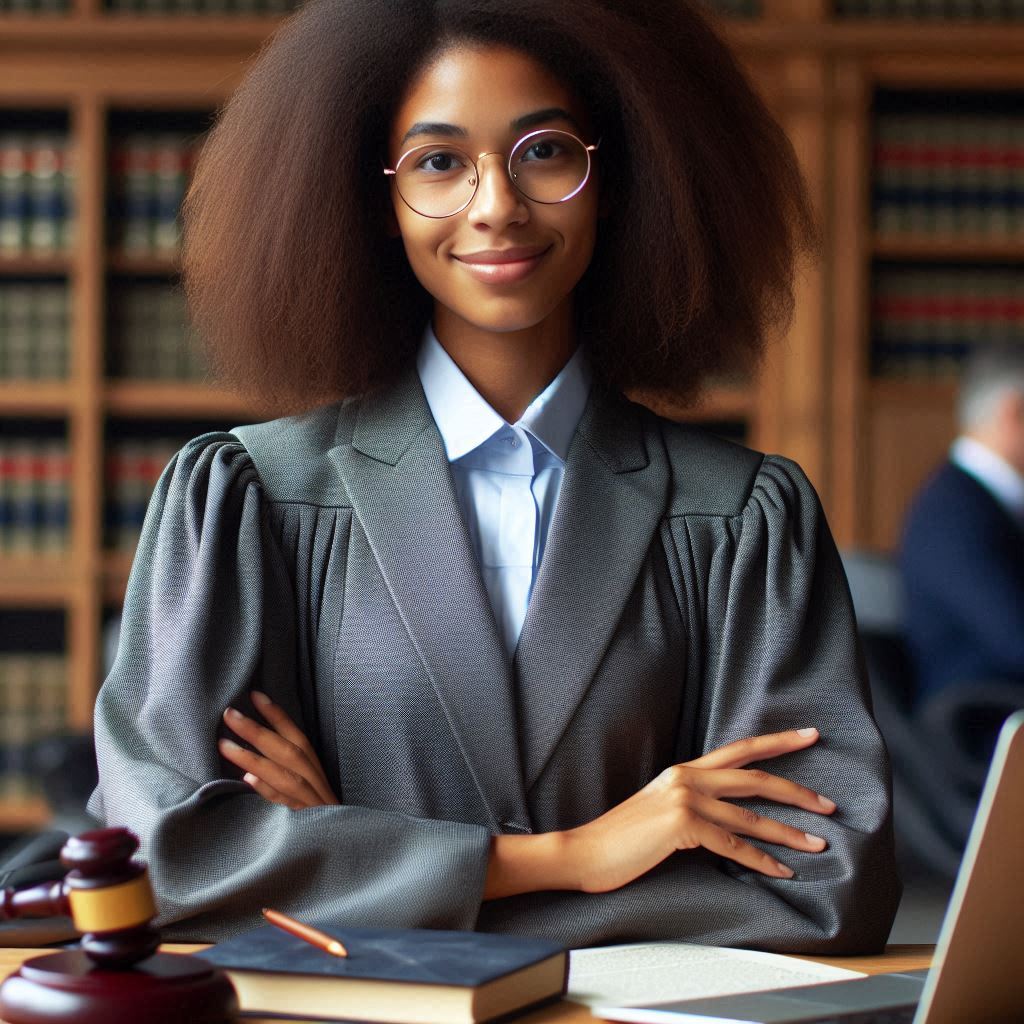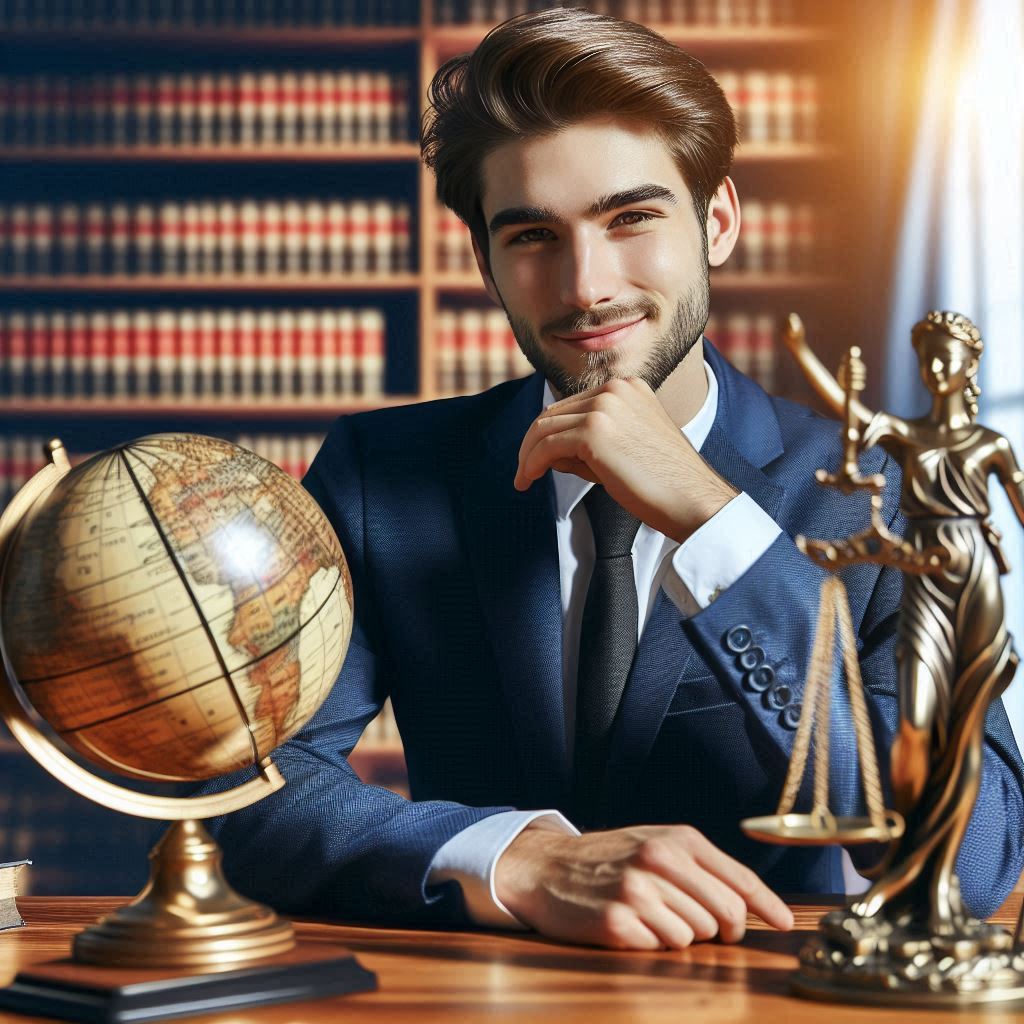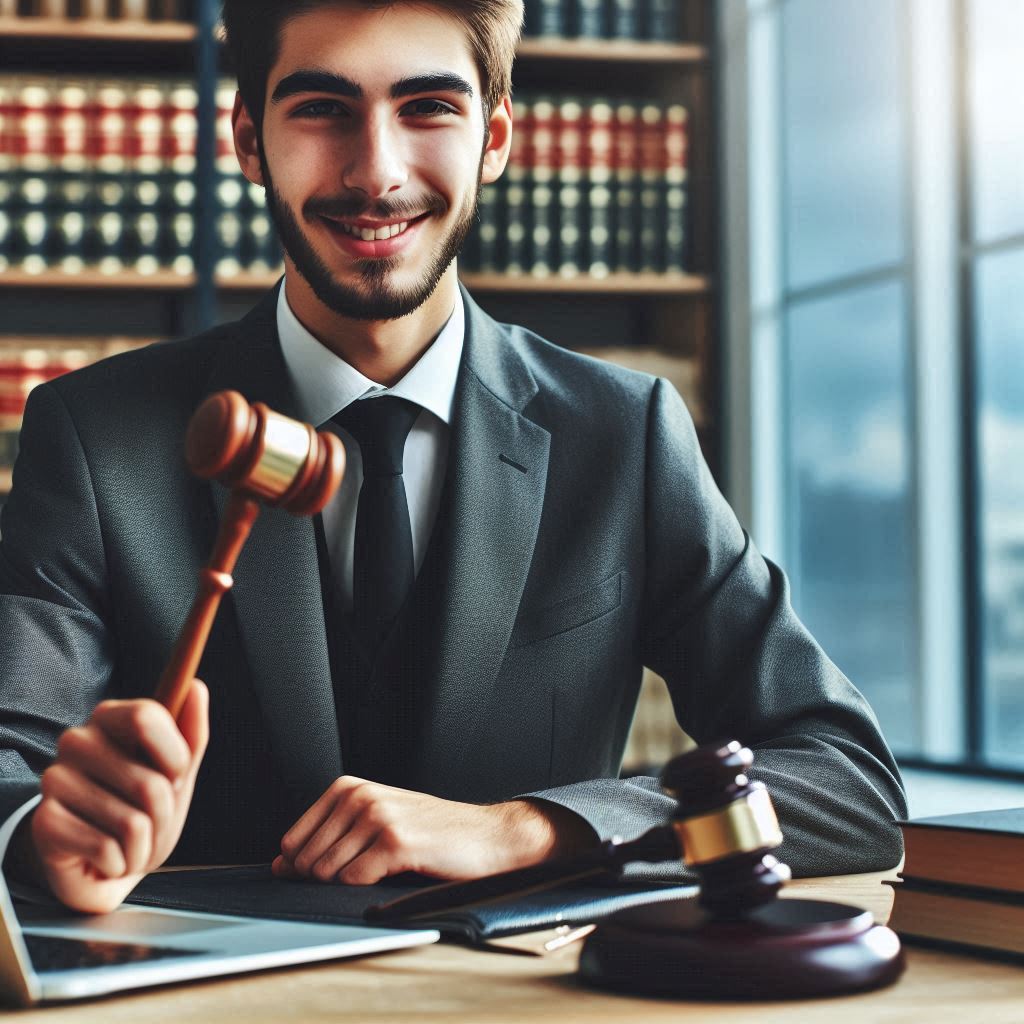Introduction
Human rights lawyers are crucial advocates in our legal system, dedicated to defending and promoting the fundamental rights and freedoms of individuals.
These professionals specialize in cases that involve violations of human rights, such as discrimination, unjust imprisonment, and abuse of power.
Their work extends beyond the courtroom; they also engage in policy advocacy, public education, and support for marginalized communities.
The role of human rights lawyers is vital in upholding and protecting the core principles of justice and equality.
They ensure that the legal system remains accountable and responsive to the needs of those who are often overlooked or oppressed.
By challenging unjust laws and practices, they contribute to creating a more equitable society where human dignity is respected.
The impact of human rights lawyers on society is profound and multifaceted.
Firstly, they act as a bulwark against systemic injustice, holding governments and institutions accountable for human rights abuses.
Their legal battles often lead to significant reforms and the establishment of new protections for vulnerable populations.
For instance, landmark cases fought by human rights lawyers have led to changes in laws concerning refugee rights, gender equality, and racial discrimination.
Additionally, human rights lawyers play a crucial role in raising awareness about human rights issues.
Through high-profile cases, public campaigns, and educational initiatives, they bring attention to abuses that might otherwise go unnoticed.
Their work not only provides justice for individual victims but also fosters a broader societal understanding of human rights issues.
In summary, human rights lawyers have a transformative impact on society by defending individual rights, promoting justice, and influencing public awareness and policy.
Their efforts are essential in advancing human rights and fostering a more just and equitable world.
Advocacy for marginalized groups
Human rights lawyers often represent marginalized groups such as refugees, immigrants, and minorities
Human rights lawyers play a crucial role in advocating for the rights of marginalized groups in society.
These groups often face discrimination, exclusion, and lack of access to essential services.
Without the legal representation provided by human rights lawyers, these individuals may not have a voice to defend their rights and seek justice.
The importance of advocacy for vulnerable populations
Refugees, for example, are often forced to flee their homes due to violence, persecution, or conflict.
Human rights lawyers help them navigate complex asylum processes, provide legal advice, and advocate for their right to seek asylum and protection in a new country.
Transform Your Career Today
Unlock a personalized career strategy that drives real results. Get tailored advice and a roadmap designed just for you.
Start NowWithout this assistance, refugees may face deportation, detention, or even return to dangerous situations.
Similarly, immigrants face numerous challenges, including discrimination, exploitation, and deportation.
Human rights lawyers work to ensure that immigrants are treated fairly, have access to legal representation, and are not subject to human rights violations.
By advocating for immigrant rights, these lawyers contribute to creating more inclusive and welcoming communities.
How human rights lawyers work to ensure equal rights and opportunities for all individuals in society
Minority groups, such as indigenous communities or ethnic minorities, often face systemic discrimination and marginalization.
Human rights lawyers play a vital role in challenging discriminatory laws, policies, and practices that perpetuate inequality and injustice.
They work to promote diversity, equality, and inclusion, ensuring that all individuals have equal rights and opportunities in society.
Advocacy for marginalized groups is essential for promoting social justice, human dignity, and equality.
Human rights lawyers help to amplify the voices of those who are often overlooked or silenced, advocating for their rights and challenging systems of oppression.
By representing the most vulnerable members of society, these lawyers contribute to building a more just, equitable, and inclusive world for all.
Read: Duties and Responsibilities of an Administrative Law Judge
Promoting social justice
Human rights lawyers are crucial in promoting social justice and challenging systemic injustices.
They play a key role in advocating for marginalized communities and ensuring that everyone has access to their rights.
Legal Strategies for Societal Change
Human rights lawyers use a variety of legal strategies to bring about societal change.
They may engage in impact litigation, which involves taking on cases that have the potential to set legal precedents and change laws or policies.
By strategically selecting cases that can have a broad impact, human rights lawyers can bring about systemic change.
Additionally, human rights lawyers often engage in advocacy work to raise awareness about human rights issues and push for policy changes.
This may involve lobbying policymakers, drafting legislation, and working with civil society organizations to create change.
By using legal mechanisms alongside advocacy efforts, human rights lawyers can effect lasting change at both the individual and systemic levels.
Showcase Your Business Today
Reach thousands of readers actively exploring professional services. Publish your business profile and grow your audience now.
Publish NowLandmark Cases for Social Justice
- Brown v. Board of Education (1954): Human rights lawyers successfully argued that racial segregation in schools was unconstitutional, leading to the desegregation of public schools in the United States.
- Roe v. Wade (1973): Human rights lawyers fought for reproductive rights, resulting in the landmark Supreme Court decision that legalized abortion in the United States.
- Obergefell v. Hodges (2015): Human rights lawyers played a pivotal role in advancing LGBTQ rights by securing the right to same-sex marriage nationwide.
These landmark cases illustrate the impact of human rights lawyers in promoting social justice and advancing the rights of marginalized communities.
Through their strategic legal work and advocacy efforts, human rights lawyers have the power to create meaningful change and uphold the principles of justice and equality in society.
Read: Human Rights Lawyer Salary and Job Outlook
Holding governments accountable
Human rights lawyers hold governments accountable for violations of human rights laws and international treaties
Human rights lawyers play a crucial role in upholding justice by holding governments accountable for human rights violations.
Their work extends beyond traditional legal practice, influencing policy, public perception, and global standards.
The role of human rights lawyers in monitoring government actions and challenging abuses of power
At the heart of their mission is the accountability of governments for breaches of human rights laws and international treaties.
Human rights lawyers scrutinize state actions, ensuring compliance with legal standards and challenging abuses of power.
This vigilant oversight helps curb authoritarianism and safeguard democratic values.
Monitoring government actions is a fundamental aspect of their role.
Human rights lawyers collect evidence, conduct investigations, and advocate for transparency.
By documenting violations and raising awareness, they mobilize public opinion and pressure governments to rectify injustices.
This often involves legal action, such as filing lawsuits or petitions, to demand accountability and redress.
The impact of human rights lawyers in ensuring respect for human rights at the national and international levels
The impact of their efforts is evident at both national and international levels.
Domestically, human rights lawyers contribute to legal reforms and promote adherence to international human rights norms.
Their advocacy can lead to policy changes, improved legal frameworks, and greater protection for vulnerable populations.
On the global stage, these lawyers collaborate with international bodies, such as the United Nations and regional human rights organizations, to address cross-border issues.
Their work in international courts and tribunals highlights systemic abuses and fosters a global culture of accountability.
In essence, human rights lawyers are instrumental in ensuring that governments respect human rights.
Their tireless efforts to challenge abuses, advocate for victims, and promote legal standards help build a more just and equitable society.
Through their work, they not only address current injustices but also contribute to a lasting legacy of human rights protection and accountability.
Read: What Is an Administrative Law Judge? Career Overview

Access to justice
Human rights lawyers work to ensure that individuals have access to justice and legal representation
Human rights lawyers play a pivotal role in ensuring access to justice for all individuals, especially those from marginalized communities.
Their work extends beyond traditional legal representation, encompassing efforts to bridge gaps in the legal system and address systemic inequalities.
The challenges faced by marginalized communities in accessing legal services
One of the primary challenges faced by marginalized communities is the difficulty in accessing legal services.
Socioeconomic barriers, such as poverty and lack of education, often prevent these individuals from obtaining necessary legal representation.
Geographic isolation and language barriers further exacerbate these issues, leaving many without effective advocacy.
The efforts of human rights lawyers in providing pro bono services and promoting equal access to justice for all individuals
Human rights lawyers address these challenges head-on.
They are instrumental in providing pro bono services to those who cannot afford legal fees, ensuring that justice is not a privilege reserved for the wealthy.
Through various legal aid organizations and initiatives, these lawyers offer critical support to individuals facing discrimination, abuse, and other injustices.
Moreover, human rights lawyers work to promote systemic changes within the legal system.
They advocate for policy reforms and support legislation aimed at reducing barriers to justice.
Their efforts include campaigning for legal aid funding, improving access to legal resources, and developing programs to educate underserved communities about their rights.
By fighting for equal access to justice, human rights lawyers not only provide essential services but also contribute to a more equitable society.
Their commitment helps to dismantle systemic barriers, ensuring that all individuals, regardless of their background, have the opportunity to seek redress and protect their rights.
In doing so, they reinforce the fundamental principle that justice should be accessible to everyone, fostering a more just and inclusive society.
Read: Challenges Faced by Human Rights Lawyers Today
Education and awareness
Human rights lawyers engage in educational initiatives to raise awareness about human rights issues
Human rights lawyers play a pivotal role in advancing social justice by focusing on education and awareness.
Their efforts in raising public consciousness about human rights issues are crucial for fostering a more informed and engaged society.
The role of human rights lawyers in conducting workshops, seminars, and campaigns to educate the public
Human rights lawyers often spearhead educational initiatives designed to illuminate the complexities of human rights violations and advocate for systemic change.
They conduct workshops, seminars, and public campaigns aimed at informing diverse audiences about their rights and the mechanisms available for protection and redress.
Showcase Your Business Today
Reach thousands of readers actively exploring professional services. Publish your business profile and grow your audience now.
Publish NowThese educational efforts are not just about disseminating information but also about empowering individuals and communities to take action.
Workshops and seminars led by human rights lawyers provide a platform for detailed discussions on topics such as discrimination, civil liberties, and international human rights standards.
These events offer valuable insights into legal frameworks and practical advice on how individuals can protect their rights.
By engaging directly with the public, human rights lawyers demystify the legal processes involved in addressing human rights abuses and highlight the importance of legal support.
Campaigns organized by these lawyers further amplify their reach.
Through media, social networks, and grassroots activities, they spread awareness about pressing human rights issues and mobilize public support.
Such campaigns often aim to garner broader advocacy for policy changes and legal reforms, which can lead to more robust human rights protections.
How increased awareness leads to greater support for human rights initiatives and policies
Increased public awareness, driven by the efforts of human rights lawyers, fosters greater community support for human rights initiatives and policies.
When people are educated about the significance of human rights, they are more likely to advocate for changes in legislation and contribute to a culture of respect and equality.
In a nutshell, human rights lawyers not only address injustices through legal channels but also build a foundation for long-term societal change through education and awareness.
Their work ensures that human rights remain a central concern in public discourse and policy-making.
International impact
Human rights lawyers play a key role in advancing human rights on a global scale
Human rights lawyers significantly influence global justice by championing human rights on an international scale.
Their work transcends borders, striving to address and rectify violations that span multiple nations.
This cross-border advocacy is crucial as many human rights issues, such as refugee crises, international conflicts, and human trafficking, are not confined to a single country.
The importance of cross-border collaboration and advocacy in addressing human rights violations
The importance of collaboration between human rights lawyers across different countries cannot be overstated.
By working together, these legal professionals can pool resources, share knowledge, and strategize collectively to tackle complex human rights issues.
Such cooperation enables them to mount a more effective response to global violations and advocate for systemic changes that respect human dignity universally.
The impact of international human rights lawyers in promoting universal human rights standards and principles
International human rights lawyers also play a pivotal role in promoting and enforcing universal human rights standards.
They engage in efforts to strengthen international human rights frameworks, such as the Universal Declaration of Human Rights and various treaties and conventions.
By holding governments and corporations accountable for human rights abuses, they contribute to the establishment and reinforcement of global norms that protect vulnerable populations.
Their advocacy extends to various international platforms, including the United Nations and international courts.
Through these venues, human rights lawyers push for justice and reform, striving to ensure that human rights principles are upheld and that perpetrators of abuses face accountability.
In summary, human rights lawyers are instrumental in advancing global human rights by fostering international collaboration and advocating for universal standards.
Their impact resonates worldwide, reflecting a shared commitment to justice and the protection of fundamental human rights for all.
Conclusion
Human rights lawyers play a crucial role in society by defending the rights of individuals.
They advocate for justice, equality, and accountability, holding governments and institutions accountable for their actions.
By representing marginalized groups, human rights lawyers amplify their voices and ensure fair treatment under the law.
Through strategic litigation, they set legal precedents that shape policies and protect human rights for all.
Human rights lawyers also provide legal counsel, empowerment, and support to victims of human rights violations.
Their work extends beyond the courtroom, as they raise awareness, educate communities, and promote social change.
In times of crisis or conflict, human rights lawyers play a critical role in safeguarding fundamental freedoms and maintaining peace.
Their dedication and commitment contribute to a more just and equitable society for all individuals.
In the end, human rights lawyers are essential in upholding human rights, promoting social justice, and creating a more inclusive world.
They are champions of justice and advocates for those who are most vulnerable in society.
Their enduring impact is seen in the protection of human rights and the advancement of equality for all.
[E-Books for Sale]
The Big Book of 500 High-Paying Jobs in America: Unlock Your Earning Potential
$19.99 • 500 High-Paying Jobs • 330 pages
Explore 500 high-paying jobs in America and learn how to boost your career, earn more, and achieve success!
See All 500 High-Paying Jobs of this E-Book
1001 Professions Without a Degree: High-Paying American Jobs You Can Start Now
$19.99 • 1001 Professions Without a Degree • 174 pages
Discover 1001 high-paying jobs without a degree! Unlock career tips, skills, and success strategies for just $19.99!




